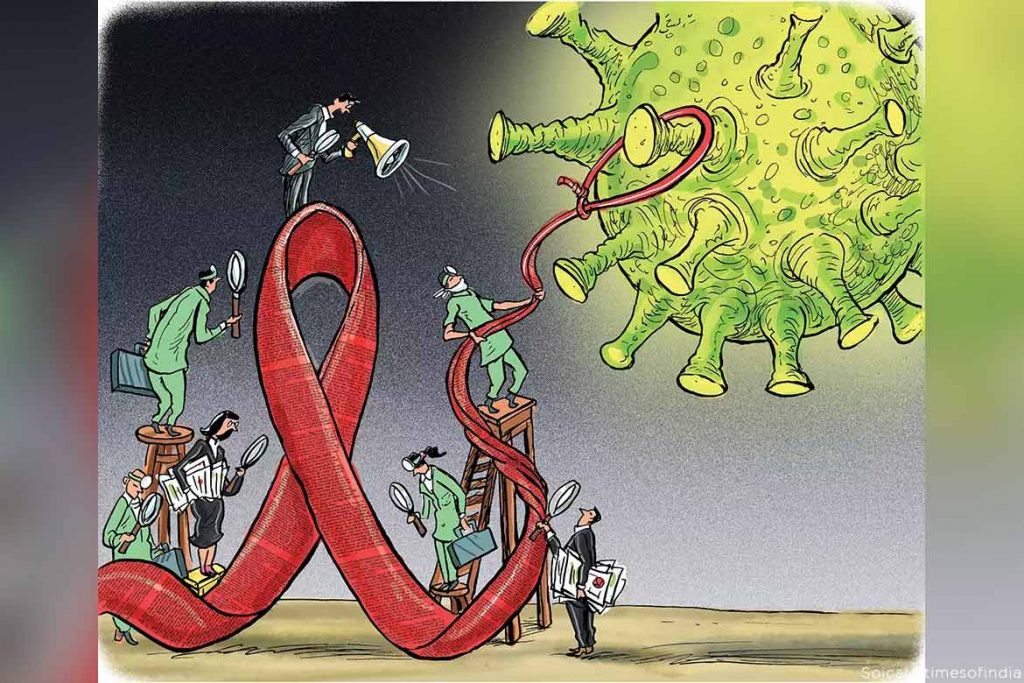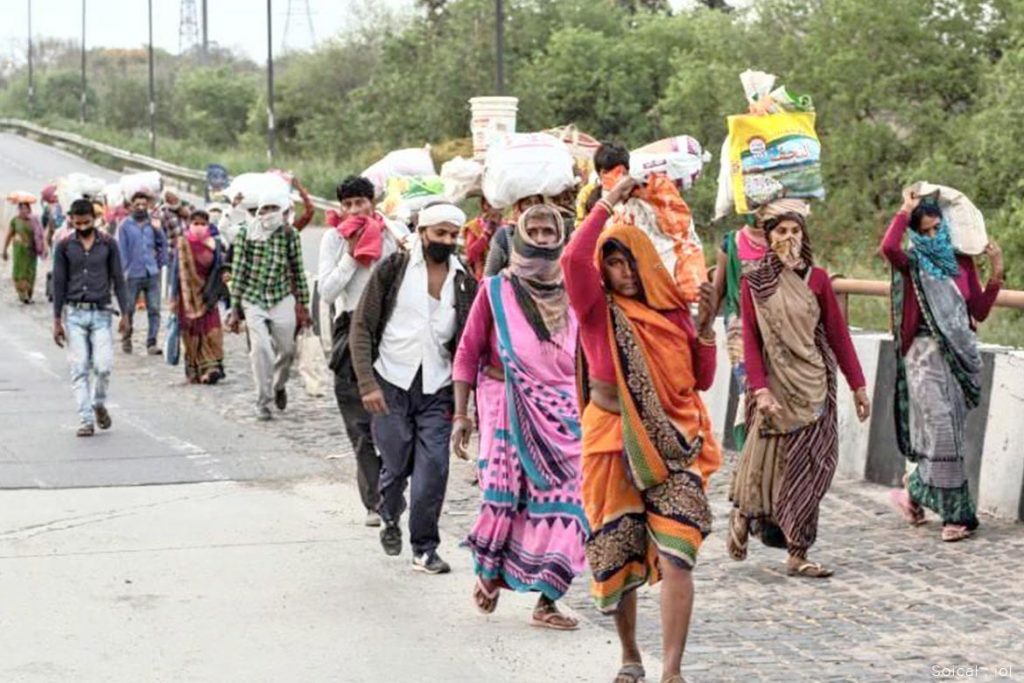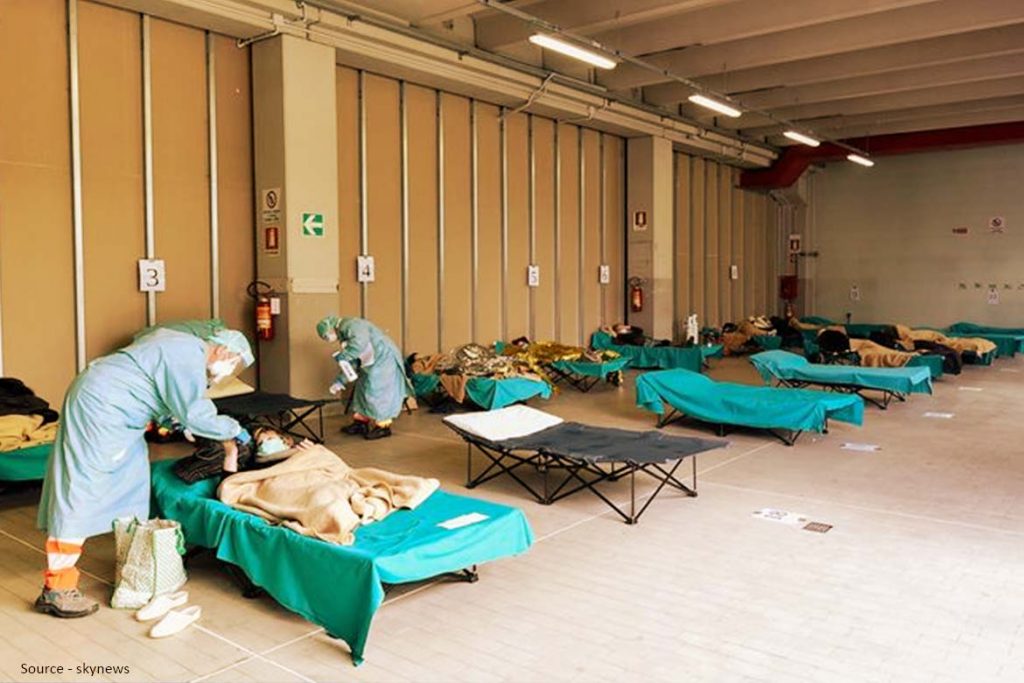HIV/AIDS gives lessons to fight against the novel coronavirus disease pandemic. The common among both is that no vaccine is available for both and also there is no licensed drug for COVID-19, likely there was not for HIV/AIDS in the initial years. There is, of course, a difference between SARS-CoV-2 and HIV. Untreated HIV/AIDS causes death in almost all cases, whereas SARS-CoV-2 mortality rate is much lower. Also, the transmission and prevention methods are different, like sexual behaviour and needle sharing in case of HIV and physical contact and social distancing for SARS-CoV-2. But there is something that India can learn from its previous HIV programme to tackle this situation. Vivek Diwan who is the head of Centre for Health Equity, Law & Policy at ILS Pune wrote a column in Indian express on this issue.

First, while tackling with pandemic it requires keeping the most marginalised and vulnerable in the centre of any plan. It should be monitored that their needs are fulfilled whether in the form of awareness and services. Creating more inclusive and nurturing health structure and social environments, it means that those who are offering these services are well aware of the realities of the vulnerable and marginalised so that they can cater their needs in a better manner.
India should foster an environment of health and governance in such a manner that those who are at the margins feel encouraged and safe to engage with. If we talk about HIV, India had successfully created such an environment in which sex workers, hijras, people living with HIV, drug users, men who have sex with other men were at the centre of health and public policy efforts. If we follow this blueprint for COVID-19, we should focus on frontline workers such as healthcare workers, police personnel and sanitation workers. Also, special focus should be on people with co-morbidities, senior citizens, and those who are facing worst times due to lockdown like migrant labourers, women, urban poor.

Second, there is a need to instil trust in poor and marginalized, they should not be treated as subjects to be regimented instead they should be looked as partners to be empowered. The need of the hour is the bottom-up approach in place of a top-down approach. They must be empowered with reliable, relatable, destigmatising and evidence-based information and services, the rights to avail these, and a health and social system that does not castigate but welcomes. And to develop such system it requires consciousness to know that whatever our expertise, we don’t have the solutions to health issues that are entwined with complex human realities. And that although those in the most serious predicaments may be lower in all the kinds of ill-conceived ways by which we measure social and human worth, they probably have insights that lead us together to solutions.

Third, leave one’s personal morality and the all-too-common human tendency to blame and vilify behind. There is a need to develop an environment in which people must know how this is transmitted but they must not stigmatise the infected. Just like HIV, many carriers of COVID-19 are also unaware of their infection.
Following these principles in tackling with HIV gave India extraordinary progress, among which one is matured health bureaucracy for whom issues of human sexuality and sexual behaviour became routinely comfortable, this bureaucracy talked to vulnerable sections like transgender and sex workers and they listen and learn from them, the insights from them helped in effective policy formulation. The policies framed in this manner became so much more effective on-ground realities.
Also Read: The Poor Can’t Work From Home, Now Face Risks to Health & Income
HIV was contained from destructing India by a bottom-up approach. It was thwarted because of a strengthened and well aware community of LGBTQ. It was a community that asked access to antiretroviral medication that pushed the government to come up with a free programme that has saved and enhanced the lives of the infected. Also, there is a need for any statue in this time just like HIV/AIDS act which prevents discrimination. Also, there is a need to regulate pharma sector to avoid monopoly of any company over life-saving drugs or testing kits.

Although there are so many differences in these two diseases, the past experience can help so much in tackling this novel disease in the long term. This hard time is also giving India an opportunity to build a more resilient health system.
